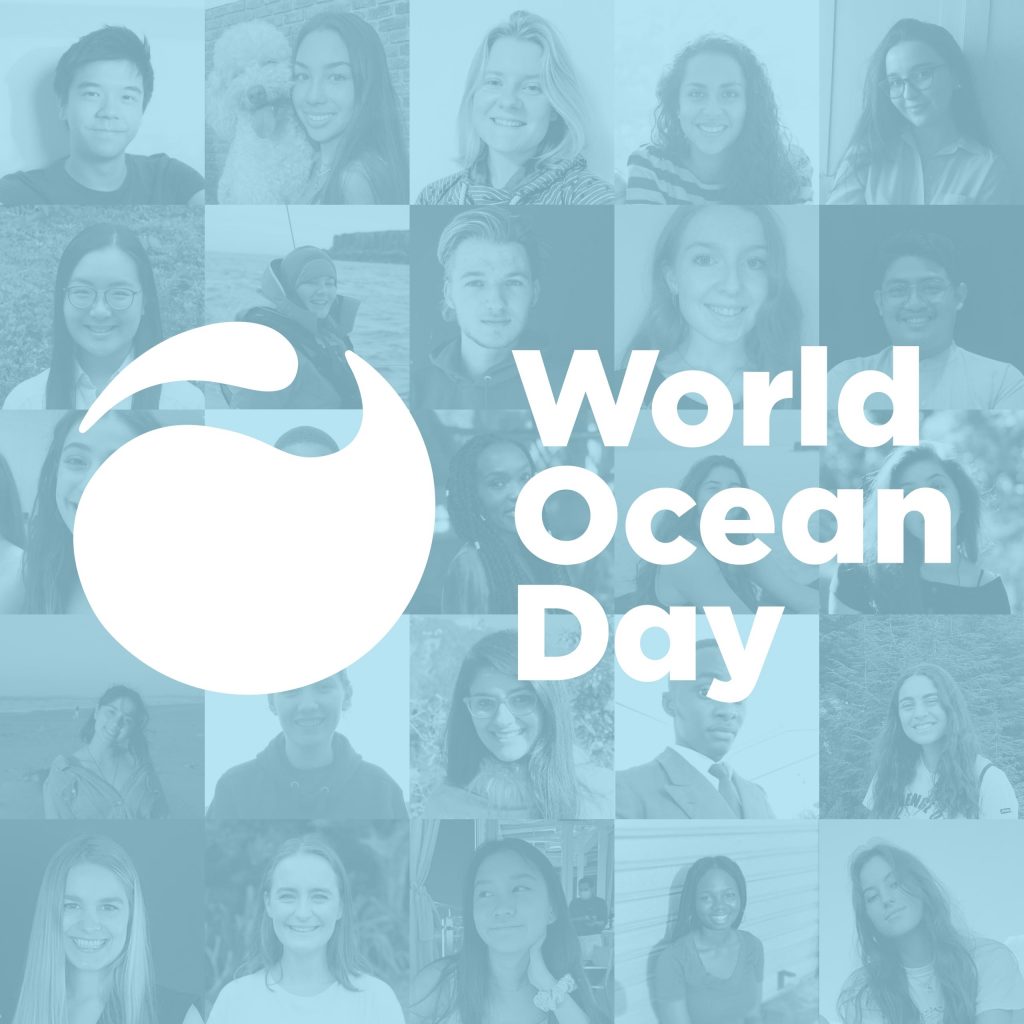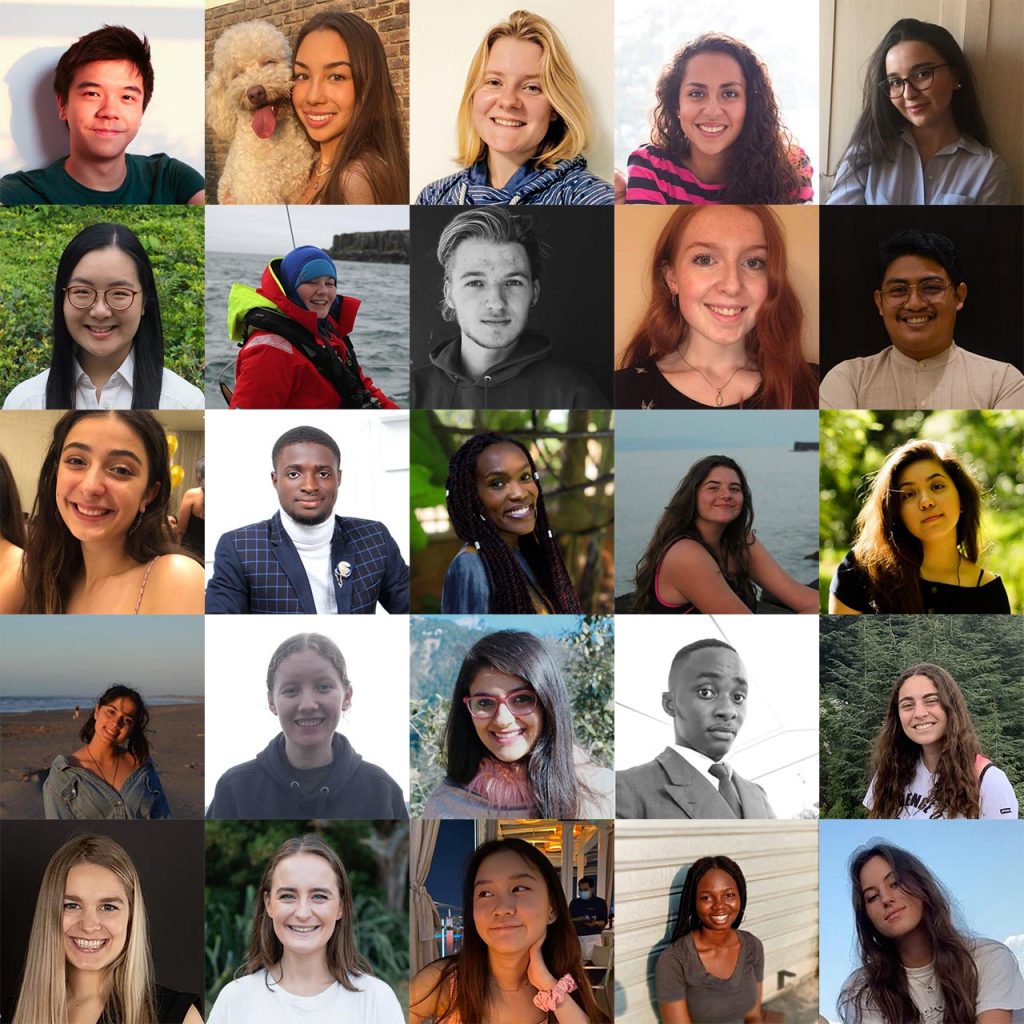BLOG / BLOG POST

The Future of World Ocean Day
By Bill Mott and Adriane Alicea
Green 2.0 Deputy Director Adriane Alicea talked with Bill Mott, Director of the Ocean Project, to discuss his reflections on World Ocean Day, young people’s leadership in ocean conservation and what’s next for The Ocean Project.
Q: Can you tell us something about The Ocean Project’s work that might surprise us?
The Ocean Project has intentionally tried not to brand itself but focus more on ‘branding’ the solutions and spotlighting our key partners, including youth leaders and aquariums and zoos, as critical stakeholders that can engage society at a scale commensurate with the size of the issues facing our blue planet. Our collaborative network for action includes approximately 2,000 organizations, in 50 states and 150 countries.
Q: You’ve played a key role in growing the impact of World Ocean Day, what has that been like?
In 2002, we took on World Ocean Day as an opportunity to raise the profile of the ocean and rally the world to action. We’ve been growing it organically, engaging all sectors. As a result of this growth and our combined efforts, in many ways, June is now “Ocean Month.” A big part of what we do to grow the reach and impact of World Ocean Day, and ocean conservation overall, is done in summer, fall, and winter each year when we reach out to engage stakeholders. We help them become more involved in ocean and climate conservation. We also develop promotional and actionable resources for event organizers; everything on WorldOceanDay.org is for anyone to use and promote action for our shared ocean. We have also been evolving World Ocean Day, shifting more focus on youth, including through our (25-member) World Ocean Day Youth Advisory Council that aims to push our work forward. These young people represent many backgrounds and are developing and shaping World Ocean Day and a fast-growing global youth network as a force for real change.

Q: The future of the ocean is inextricably linked to environmental justice. How do we ensure that equity is centered in this work?
Around the world, the communities most affected by the future of our changing ocean — with rising sea levels, more intense hurricanes, and typhoons, overfishing and other interrelated issues — are often communities of color and people living with economic hardship. People within these communities often do not have the resources or power to mitigate these major threats to their lives and livelihoods.
Regarding the health of the ocean, equity needs to be front and center in the decision-making process. Having a seat at the proverbial table is a first step, which is important to ensure equitable access at some levels but it’s also important to center people and communities of color in the discussions with decision-makers. As we fight for equity it is important to remember that all Americans deserve equitable access to the coasts and the ocean. The ocean and its diversity of life is our greatest public resource and is held in trust by the government for all people, no matter where we come from.
Q: What are some of your best memories associated with World Ocean Day?
My favorite memories with World Ocean Day are associated with helping to bring young people together to celebrate and act for our blue planet. I learn so much from young people and I’m always looking to connect youth leaders with each other and with ways to advocate with national and world leaders. I am excited to continue to grow our collaborative efforts to support youth leadership and advocacy across the country and around the world!
Q: How does The Ocean Project prioritize diversity, equity, and inclusion in your work?
We have attempted to be more intentional in all our work to prioritize DEI and youth engagement, especially since 2008 when our national public opinion research showed that Americans in households where English is not the primary language, as well as tweens, teens and young adults, typically express higher levels of concern about ocean issues and are more willing to modify their behavior.
We are a small organization but supporting diverse youth leadership and advocacy has been a priority of The Ocean Project and we are continually trying to do more. Our work by design is mostly behind-the-scenes, aimed at expanding efforts for a healthy ocean as part of the larger movement for a more equitable and sustainable society. As one example on a national level, Sea Youth Rise Up is an advocacy campaign that grew from a plan to create a collaborative diverse youth movement. This program has provided youth from across America with important advocacy training and leadership opportunities, helping them share their views with decision-makers.
As our organization evolves, we are always looking to improve how we address DEI in all our work. We know we have a long way to go, but we are committed to doing our part to grow a diverse global network that values collaboration, inclusion, impact, and respect for all people and life on our blue planet.
Q: What is the theme for this year’s World Ocean Day and how can each of us get involved?
Each year we develop a Conservation Action Focus to spotlight an issue of rising importance, focused on solutions and acting by tying it in with existing efforts. From 2012-2019 we helped increase global awareness and action on the issue of single use plastic and preventing plastic pollution. Since then, we have been rallying the world around “30×30”, which is about protecting at least 30% of our blue planet by 2030, to ensure a healthy ocean and climate. We’re connecting the World Ocean Day network with the growing 30×30 movement to address the interconnected issues of ocean, climate, and biodiversity. The actions that our leaders take (or fail to take) this year will determine the health of our blue planet and security of future generations for decades to come.
To learn more about World Ocean Day, visit worldoceanday.org, follow on Twitter @worldoceansday, Facebook @worldoceanday, and Instagram @worldoceanday.
To learn more about The Ocean Project, visit theoceanproject.org.
